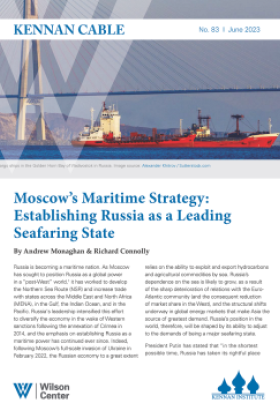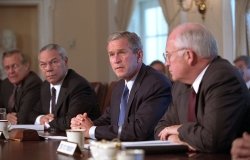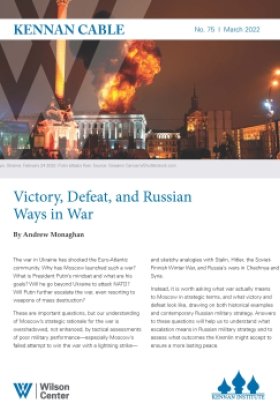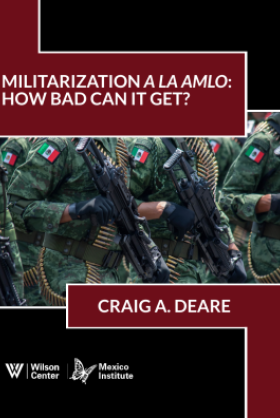Global Land Mine Elimination and the Ottawa Convention: Canadian Foreign Policy at Work
Christopher Kirkey discussed the impact of the Ottawa Convention on Canada-U.S. relations and considered the significance of the convention in Canadian foreign policy.
Overview
In December 1997, 122 countries signed the Convention on the Prohibition of the Use, Stockpiling, Production and Transfer of Anti-Personnel Mines and on their Destruction, commonly known as the Ottawa Convention. Canada led the effort to convene a world conference to debate the elimination of land mines and successfully led a 14-month push to get a treaty signed. Speaking at a meeting sponsored by the Wilson Center's Canada Institute, Christopher Kirkey discussed the impact of the Ottawa Convention on Canada-U.S. relations and considered the significance of the convention in Canadian foreign policy.
During the 1990s, Canada worked with other interested nations and NGOs to encourage states to ban anti-personnel and anti-tank land mines. In May 1996, Canada announced it would convene a forum among governments, NGOs and others to develop a land mine elimination treaty. The United States participated in the forum and was among 50 countries that pledged to reach an agreement to ban and eliminate land mines, but was unwilling to agree to a formal deadline. At the conclusion of the October 1996 conference, Canada's Minister of Foreign Affairs, Lloyd Axworthy, stunned the world when he abruptly announced that Canada would convene a treaty signing conference in December 1997, which unilaterally imposed a deadline for the agreement. U.S. officials in the Departments of State and Defense, feeling broadsided, resented the surprise and the deadline which would require the U.S. to give up land mines much sooner than they were ready to.
Axworthy's unilateral actions demonstrated an activist and internationalist approach of Canadian foreign policy which had largely been aligned with Western interests in the Cold War period. According to Kirkey, Canada sought to carve a role for itself as a nation that made positive contributions to the maintenance of world order. The number of signatories to the Ottawa convention in such a short period demonstrated Canada's success in creating a leadership role for itself on the world stage. These events, however, did not have a positive effect on official Washington and on Canada-U.S. relations; the State Department in particular felt that a sense of trust between the two nations had been undermined. Kirkey remarked that Canada did not consider the negative impact that the unilaterally imposed deadline might have on relations with the U.S.
Kirkey did note that Canada—and the United States—have contributed hundreds of millions of dollars for land mine elimination although the U.S. has not yet acceded to the treaty.
David N. Biette, Director, Canada Institute
Hosted By

Canada Institute
The mission of the Wilson Center's Canada Institute is to raise the level of knowledge of Canada in the United States, particularly within the Washington, DC policy community. Research projects, initiatives, podcasts, and publications cover contemporary Canada, US-Canadian relations, North American political economy, and Canada's global role as it intersects with US national interests. Read more
Thank you for your interest in this event. Please send any feedback or questions to our Events staff.










